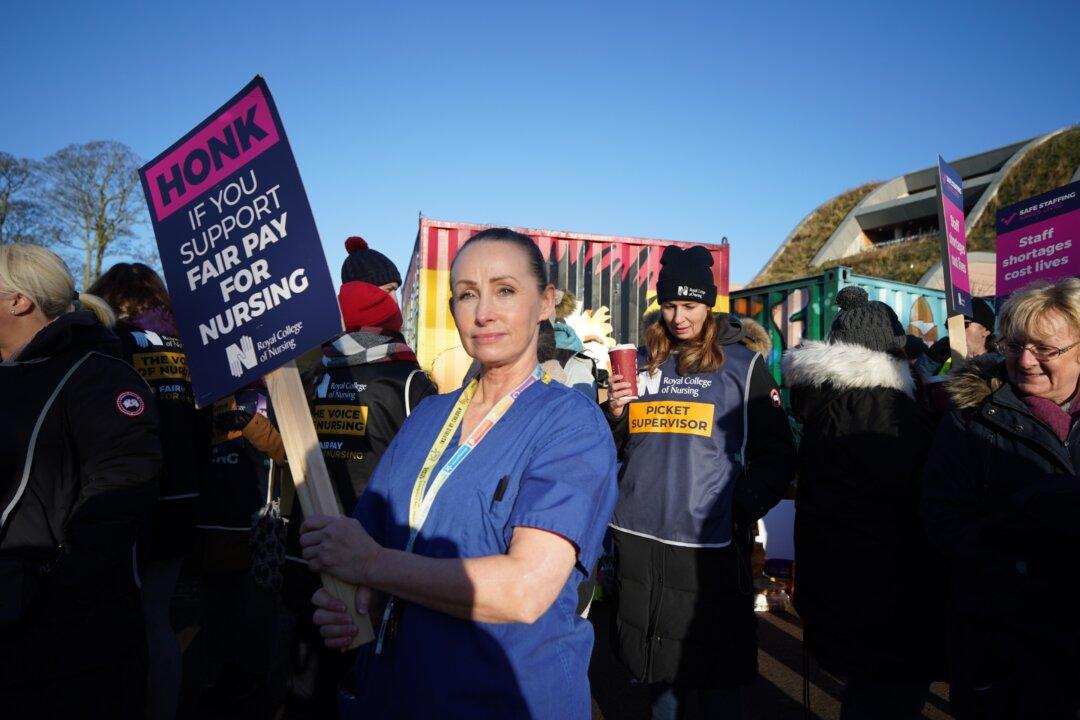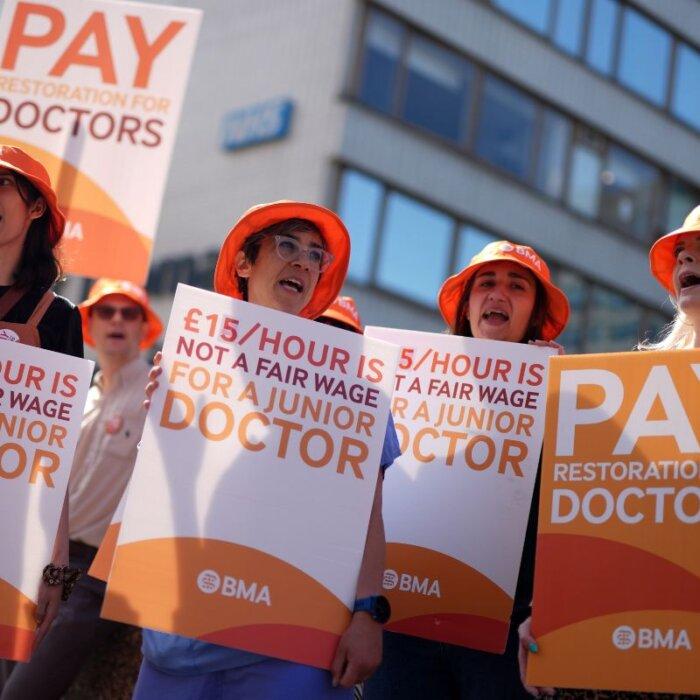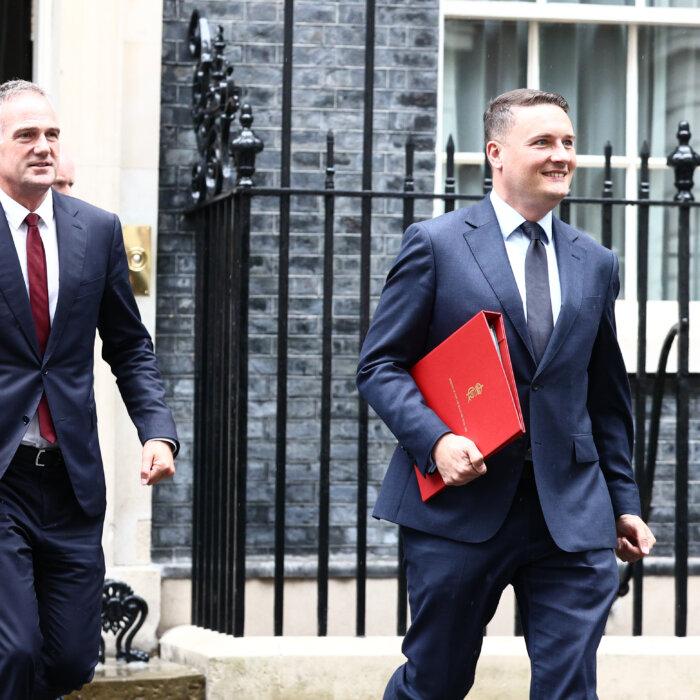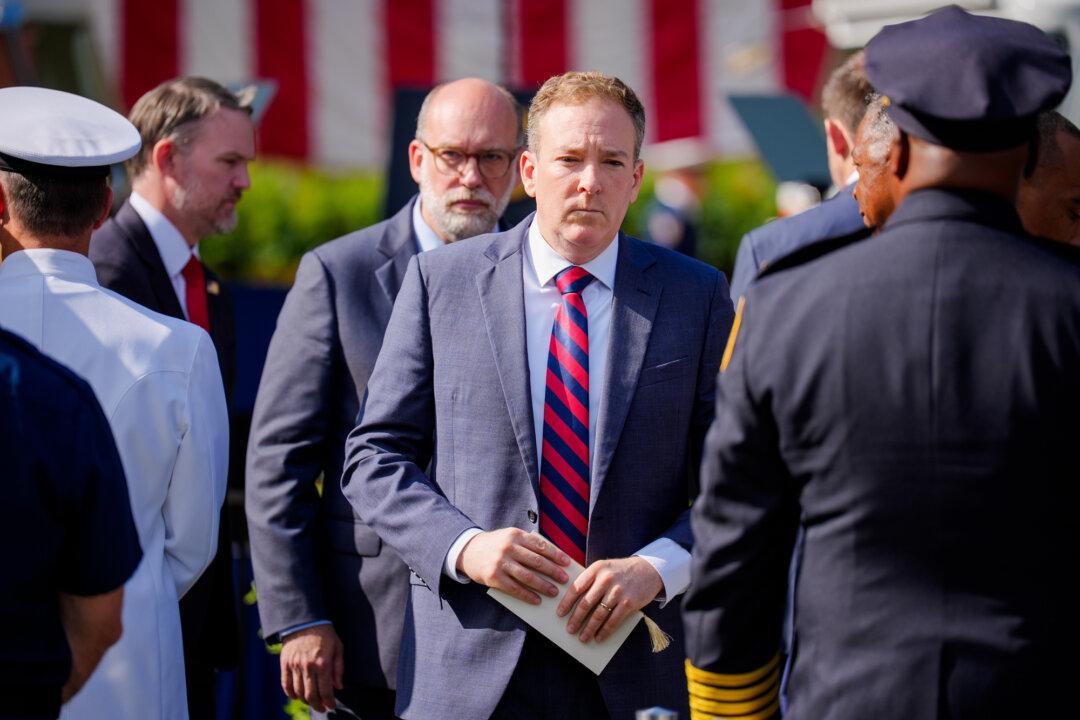NHS nursing staff have rejected the government’s offer of a 5.5 percent pay rise.
In a record 145,000 turnout, two-thirds of the Royal College of Nursing (RCN) members in England voted to turn down the pay deal on Monday.
The government offered a 5.5 percent consolidated pay increase across all bands in late July. Chancellor Rachel Reeves said that it would be paid in October and backdated to April 1.
Speaking after the vote, Royal College of Nursing (RCN) Chief Executive Nicola Ranger said that the nurses’ expectations of the government are “far higher.”
In a letter to Secretary of State for Health and Social Care Wes Streeting, she said: “We are witnessing a fundamental shift in the determination of nursing staff to stand up for themselves, their patients and the NHS they believe in.
“Many will support the new government’s health and care agenda as set out in recent weeks and fully recognise the diagnosis of a failing NHS. Working closely with all other professionals, nursing staff are the lifeblood of the service. The government will find our continued support for the reforms key to their success.”
Nursing staff struggle with understaffed shifts, poor patient care, and nursing careers trapped at the lowest pay grades, the RCN said.
Fair Pay
The government considers the above-inflation pay rise offer adequate and said it will continue working with NHS staff to achieve an agreement.“We know what nurses have been through in recent years and how hard it is at the moment. That’s why, despite the bleak economic inheritance, the chancellor awarded them with an above-inflation pay rise,” said Streeting.
“For the first time in a long time, nurses have got a government on their side, that wants to work with them to take the NHS from the worst crisis in its history, to get it back on its feet and make it fit for the future. We will work with NHS staff to turn this around together,” he said.
The rejection of the government’s pay offer was announced as Reeves was speaking to the Labour Party’s annual conference on Monday.
In her speech, the chancellor said she was “proud to stand here as the first chancellor in 14 years to have delivered a meaningful, real pay rise to millions of public sector workers.”
“We made that choice. We made that choice not just because public sector workers needed that pay rise but because it was the right choice for parents, patients, and for the British public,” Reeves said.
Commenting on RCN’s vote, Reeves said that it was her understanding that the decision is “advisory” and hoped that strikes will not follow. She vowed to work with public sector workers who are struggling to cope with the cost of living, as part of the government’s plan to “get the NHS back on its feet.”
Other health unions have accepted pay offers from the government.
Members of RCN Scotland backed the 5.5 percent pay rise, with 61 percent voting for the deal. The union’s leadership said the increase in pay was “long overdue” and described it as “another step on the journey to fair pay.”
“We have made it clear that we expect the Scottish Government to be better prepared to enter negotiations in a timely fashion for 2025–26,” said RCN Scotland Director Colin Poolman.
This month, the government also managed to strike a deal with junior doctors after offering a pay uplift of 22.3 percent over two years. The deal brought an end to the long-running dispute, which saw junior doctors strike 11 times since 2023.







